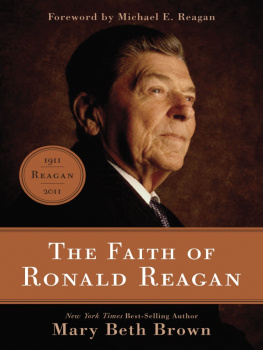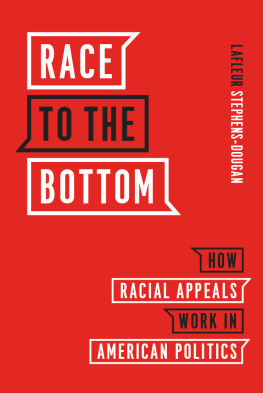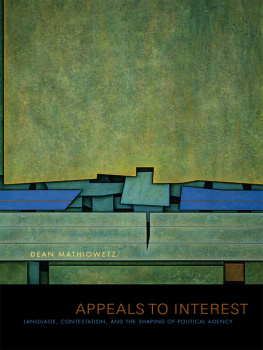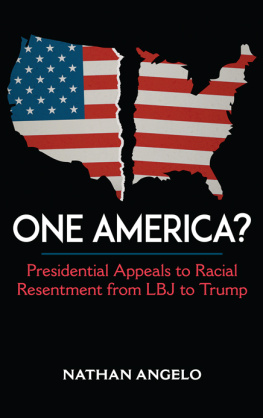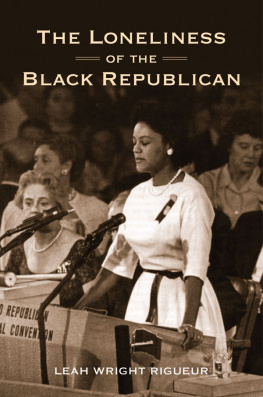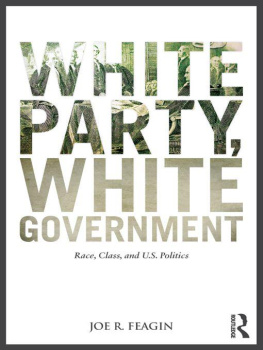Dog Whistle Politics
DOG WHISTLE POLITICS
HOW CODED RACIAL APPEALS HAVE REINVENTED RACISM AND WRECKED THE MIDDLE CLASS
IAN HANEY LPEZ


Oxford University Press is a department of the University of Oxford.
It furthers the Universitys objective of excellence in research, scholarship,
and education by publishing worldwide.
Oxford New York
Auckland Cape Town Dar es Salaam Hong Kong Karachi
Kuala Lumpur Madrid Melbourne Mexico City Nairobi
New Delhi Shanghai Taipei Toronto
With offices in
Argentina Austria Brazil Chile Czech Republic France Greece
Guatemala Hungary Italy Japan Poland Portugal Singapore
South Korea Switzerland Thailand Turkey Ukraine Vietnam
Oxford is a registered trade mark of Oxford University Press
in the UK and certain other countries.
Published in the United States of America by
Oxford University Press
198 Madison Avenue, New York, NY 10016
Ian Haney Lpez 2014
All rights reserved. No part of this publication may be reproduced, stored in a retrieval system, or transmitted, in any form or by any means, without the prior permission in writing of Oxford University Press, or as expressly permitted by law, by license, or under terms agreed with the appropriate reproduction rights organization. Inquiries concerning reproduction outside the scope of the above should be sent to the Rights Department, Oxford University Press, at the address above.
You must not circulate this work in any other form
and you must impose this same condition on any acquirer.
Library of Congress Cataloging-in-Publication Data
Haney Lpez, Ian.
Dog whistle politics : how coded racial appeals have reinvented racism and wrecked the middle class / Ian Haney Lpez.
p. cm.
ISBN 9780199964277 (hardback : alk. paper) 1. RacismPolitical aspectsUnited StatesHistory20th century. 2. United StatesRace relationsPolitical aspectsHistory20th century. 3. RacismPolitical aspectsUnited StatesHistory21st century. 4. United StatesRace relationsPolitical aspectsHistory 21st century. 5. Communication in politicsUnited StatesHistory20th century. 6. Communication in politicsUnited StatesHistory21st century. 7. United StatesPolitics and government19451989. 8. United StatesPolitics and government1989 9. Post-racialismUnited StatesHistory. I. Title.
E185.615.H278 2014
323.1196073dc23
2013015913
9780199964277
9 8 7 6 5 4 3 2 1
Printed in the United States of America on acid-free paper
To family members across four generations,
each compassionate and generous in his or her own manner:
in memory of my father, Terry, and brother, Garth;
and for my stepdaughter, Chelsea, and granddaughter, Lennea.
Contents
LEARNING ABOUT RACISM AT HARVARD LAW
Two themes dominate American politics today: at the forefront is declining economic opportunity; coursing underneath is race. This book connects the two. It explains popular enthusiasm for policies injuring the middle class in terms of dog whistle politics: coded racial appeals that carefully manipulate hostility toward nonwhites. Examples of dog whistling include repeated blasts about criminals and welfare cheats, illegal aliens, and sharia law in the heartland. Superficially, these provocations have nothing to do with race, yet they nevertheless powerfully communicate messages about threatening nonwhites. In the last 50 years, dog whistle politics has driven broad swaths of white voters to adopt a self-defeating hostility toward government, and in the process has remade the very nature of race and racism. American politics todayand the crisis of the middle classsimply cannot be understood without recognizing racisms evolution and the power of pernicious demagoguery.
I initially sketched the ideas elaborated here in the Sixteenth Annual Derrick Bell Lecture on Race in American Society, delivered at New York University in the fall of 2011. The professor honored by the lecture series, Derrick Bell, passed away less than a month before the lecture he had invited me to deliver. You may have heard of him. Leading up to the 2012 election, a rightwing media outfit promised a bombshell about President Barack Obama. It turned out to be a grainy video of Obama as a student at Harvard Law School introducing Bell at a rally, and then giving him a hug. The warm clasp, media provocateur Andrew Breitbarts group claimed, symbolized Obamas full embrace of an intellectual leader they described as the worst Johnny Appleseed of a nasty racialist legal theory [that argues] that the law is a weapon of the majority whites to oppress people of color.
As others have observed, Obamas conciliatory above-the-fray political style from those years has carried over to his presidency. I would say the same regarding the approach to race Obama seemed to cultivate as a studentthat one can heal racial divisions by standing apart from racial conflict, simply letting race play itself out. This is far from what Derrick Bell taught.
My focus at this point is not on Obama, though, but on Bell and my relationship with him. I had the enviable opportunity to study with Bell in the late 1980s and early 1990s, at the start of my own lifelong intellectual engagement with race and racism in the United States. This is not to say that I was close to Bell during my student days, or that I stayed in contact with him over the last two decades. On the contrary, I had hoped to use the lecture in his honor to finally fully repair a strained relationship. Over just the past few years I had been able to reconnect with Bell, and we had even joked about my having been a difficult student in one of the last courses he taught while still at Harvard. But we had never discussed the source of the estrangementan estrangement so deep that mid-semester I simply stopped attending class. That long-ago conflict bears directly on my arguments in the pages that follow.
Bell taught his course through weekly engagements with chapters from a book he was then writing, Faces at the Bottom of the Well: The Permanence of Racism. The end of slavery, and of Jim Crow segregation, were merely temporary peaks of progress sliding into irrelevance? The claim seemed ridiculous.
To explain away his thesis, I focused not on its substance but instead on Bells psychology. He was then in a particularly challenging place: his beloved wife Jewel was dying of cancer. And as if that wasnt enough, two decades after becoming the first tenured black professor at Harvard Law, he was in the midst of protesting that schools insistence year after year that no woman of color qualified to serve on its august faculty. True to his background as a civil rights lawyer and activist, Bell had taken an unpaid leave of absence to pressure the institution, and we students staged rallies in supportincluding the event at which Obama introduced Bell. The school administration responded by demanding that Bell return to full-time teaching, or resign his tenured professorship. He resigned. I thought then that he was at a bitter point in life, infecting his insights and his pedagogy.
In retrospect, it was my mindset that mattered more. Young and liberal, I burned with impatience, emboldened by an arc of history bends toward justice certainty about the world. I didnt have much tolerance for deep pessimism. Plus, my own biography suggested that Bell was wrong. Like Obama (we overlapped at high school too), I grew up in Hawaii as a biracial kid, albeit white and Latino. Rarely encountering the racially pejorative views more common on the mainland, I learned to move easily among different groups. Also, I was privilegednot to the degree of most of my peers at HLS, to be sure, but after all wasnt I there walking its hallowed halls and studying in its storied classrooms? Wasnt my life, and indeed even Bells Harvard professorship, proof positive that at least some progress had been made, clear evidence that the civil rights movement, though it hadnt achieved nearly enough, still had moved this country dramatically forward? I viscerally rejected Bells dismal analysis, for it assaulted my confidence in the moral universe and drew into question the meaning and security of my own position.
Next page




